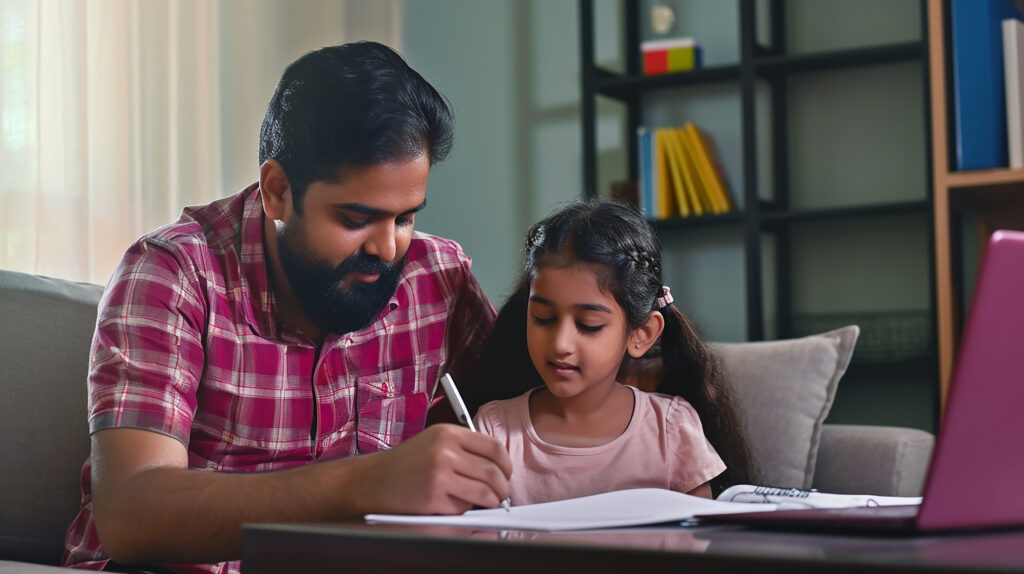Parents that remain active in the school system see improvements in their kids behavior, attendance, and grades as well as in their social skills and ability to adjust to a new environment. Long-term success, according to studies, is mostly dependent on pupils having a lifetime passion of learning, which is more safely fostered by parental participation.
95% of students with parents who are actively involved in their education share better emotional and physical health, which gives them a strong foundation for academic success.
- decreased levels of tension and worry.
- increased focus in the school environment.
- improved learning and memory.
- improved ability for thinking.

Setting a strong foundation for education early on
Here are some main justifications for its importance: Developing Self-Belief: A strong foundation in education gives students confidence. Early mastery of foundational ideas gives kids greater self-assurance in their skills, which encourages them to take on new challenges and realize their full potential.
There are many ways that families may implement learning into daily activities, such as reading books, putting toys away, and brushing teeth. Giving a youngster the freedom to choose a book to read fosters independence and decision-making in them. Teaching children to put up toys in an organized and respectful manner is beneficial.
Building a supportive learning environment at home:
For learners to realize their greatest potential, an atmosphere of encouragement is necessary. It inspires children to explore, take chances, and develop. A great learning environment is the result of several factors working together.

Communication with teachers and school involvement:
Advantages of Open Communication. It enables parents to establish a rapport with the teacher of their child. Teachers are able to boost knowledge by providing explanations of what is happening in the classroom, and parents can feel safe approaching them with any concerns they may have.
Children who have engaged parents do better academically, have greater self-esteem, attend school more frequently, and are more eager to learn. Involving parents also helps to foster a more encouraging learning environment, which improves academic achievement.
Engaging kids in their own education:
Instructors can create opportunities for student participation by using socratic seminars and polling questions. For a project, they can let students select books from a list or activities from a menu at the math station. By monitoring their own development and establishing their own objectives, students can develop responsible behavior.
Using brainstorming to help students identify what they want to know can also encourage curious thinking. See more examples of writing visualizations. Analogously, annotation is a visualization technique that strongly relies on imagination.
Making learning fun and interactive:
Through practical experiences, kids can learn by doing and figuring things out on their own. Another name for it is experiential learning. The basic premise of experiential learning is to provide students the chance to create their own knowledge via their own experiences.
Reward systems, difficult puzzles, and interactive storytelling are all great ways to add interest to instructional games. Utilize top-notch audio and visuals to draw players in. Showcase the taught knowledge and abilities in practical ways.
Balancing extracurricular activities and academics
Balanced Development: Extracurricular activities promote physical, emotional, and creative development while academics concentrate on cognitive development. They help to make education more comprehensive.
Create a ‘to do’ list for everyday duties after planning your semester and adding weekly assignments. Large projects should be divided into manageable time blocks that fit into your timetable. Make a list of the three things you need to get done that day using the Daily Top Three.
Parents who actively participate in their child’s education help them acquire the abilities necessary for success. Parental encouragement of participation is the final step in helping kids get involved in the classroom. This entails supporting their organization and urging them to pose inquiries.
Parents can participate actively in their children’s education by offering homework assistance and assignment support. This involvement not only helps to reinforce academic information but also helps parents better understand their child’s strengths and shortcomings.

